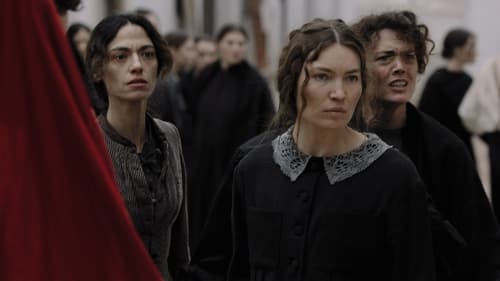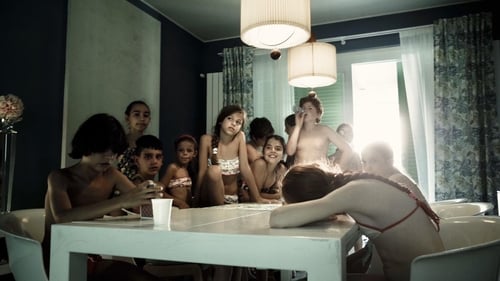
It is the end of World War I and the young Italian soldiers are making their way back to San Giovanni Rotondo, a land of poverty, with a tradition of violence and submission to the iron-clad rule of the church and its wealthy landowners. Families are desperate, the men are broken, albeit victorious. Padre Pio also arrives, at a remote Capuchin monastery, to begin his ministry, evoking an aura of charisma, saintliness and epic visions of Jesus, Mary and the Devil himself. The eve of the first free elections in Italy sets the stage for a massacre with a metaphorical dimension: an apocalyptic event that changes the course of history.

Alexis
In a dystopian Rome, a law is enforced which does not allow immigrant families to have more than three children. If a fourth is to be expected, he or she must be born, however, one of them must then be killed, giving the females priority for sacrifice. Zoe, Iris and Clio are three sisters, but one of them will soon be killed. Tria is a tragic story, suspended between life and death, set in the home of a family that has accepted to sacrifice its integrity in order to carve out a place in the world. A dystopian story, yet not so far from what could happen, or what, somewhere else, may have already happened.

Rome. Claudio is 15 and someone is writing on his forehead “J’ador” because he smells girlish. That’s Lauro, the 18-year-old leader of a group of youngsters that call themselves fascists and do a lot of things for a far-right political party. Claudio wants to go with them to the “dinner” organized by the party section, but one can only attend if he’s part of the group, and cry-babies are not allowed. If he wants to achieve what he wants, in just one afternoon Claudio has to lose his baby scent and start to smell like a man.

Fidanzato di Vilma
In a small suburb on the outskirts of Rome, the cheerful heat of summer camouflages a stifling atmosphere of alienation. From a distance, the families seem normal, but it’s an illusion: in the houses, courtyards and gardens, silence shrouds the subtle sadism of the fathers, the passivity of the mothers and the guilty indifference of adults. But it’s the desperation and repressed rage of the children that will explode and cut through this grotesque façade, with devastating consequences for the entire community.



